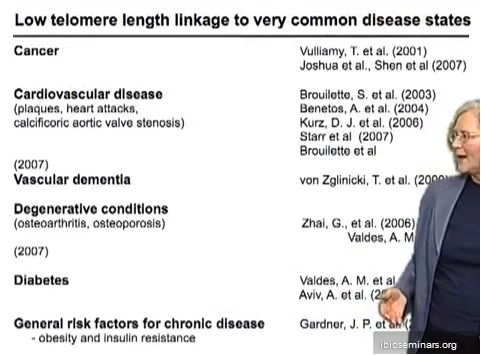
Can Our Karma Work, One Day, Prove To Help Lengthen Telomeres?
Elizabeth Blackburn: Elizabeth H. Blackburn, who shared the 2009 Nobel Prize in medicine, talks about her work on telomeres, and when she knew she wanted to be a scientist.
Here is The Full New York Times Article
SAN FRANCISCO — Scientists are trained to be skeptics, and Elizabeth H. Blackburn considers herself one of the biggest. Show her the data, and be ready to defend it.
Dr. Blackburn, 64, a professor of biology and physiology at the University of California, San Francisco, says she has been convinced by a decade of data from her own team and others, linking short telomeres to heart disease, diabetes, cancer and other diseases, and to chronic stress and post-traumatic stress disorder. With studies that explore the connections among emotional stress, health and telomeres, she has delved into questions that she would have shied away from earlier in her career, as a woman trying to establish herself in science.
Telomeres are often compared to the plastic tips that keep the ends of shoelaces from fraying. Scientists had long suspected that telomeres protected the ends of chromosomes, but no one knew how. Each time a cell divides, its telomeres shorten, and if they get too short, the cell cannot divide any more. But somehow, in healthy cells, the telomeres were being rebuilt.
A little more than 10 years ago she began to collaborate with Elissa Epel, a psychologist at the university who studies chronic stress. One of their first projects involved mothers who were the main caregivers for children with chronic diseases.
“It really resonated with me as a mother,” Dr. Blackburn said. “I just sort of felt for these women so much. A very nonscientific reason, if you will, but isn’t that an interesting question?”
Compared with the mothers of healthy children, those with sick ones had shorter telomeres and less telomerase, and the longer they had been caring for the children, the shorter their telomeres were. The findings were similar in people taking care of spouses with dementia. Other studies have suggested that traumatic events early in life may have effects on telomeres and health that persist for decades.
These studies, Dr. Blackburn said, have taken her far from her early days as a lab rat, to issues and segments of society that she considers neglected.
She has also become curious about the physical and mental effects of meditation, learning one of the techniques herself. And she has wondered whether it does anything to telomeres.
